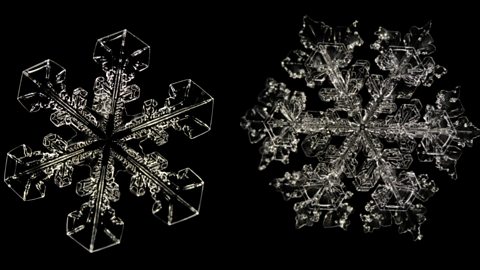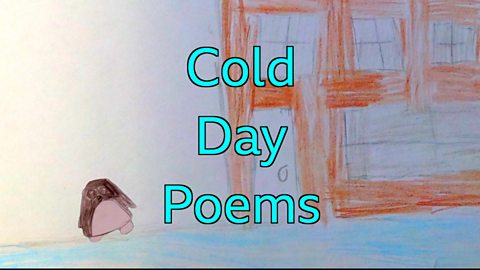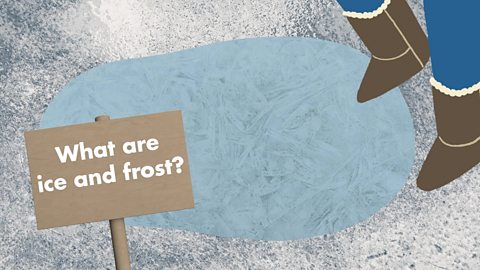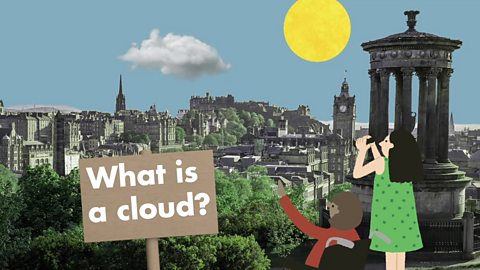What is snow?
When it gets very cold in winter, it might snow.
In this article you can learn:
- Where snow comes from
- Different types of snow
- What a dendrite snowflake is
- What slush is
This resource is suitable for weather topics for primary school learners.
Video - What is snow?
Watch this video to find out where snow comes from and learn about different types of snow.
Look out the window - it’s snowing! Let’s go make a snowman! But hold on - what is snow?
Snow is a form of precipitation, just like rain and sleet.
When it is very cold, tiny ice crystals begin to form high up in the sky. More crystals grow on top of these ice crystals to create hexagonal shapes called snowflakes. Hexagonal means they have six sides.
If they fall through cold, dry air, the snow will be powdery.
If the snowflakes fall through air that is slightly wet and a bit warmer the snow will be wet. Wet snow like this is what we usually get in the UK.
Even though the snowflakes that make up snow are always hexagonal, they are always different.
Some snowflakes have very simple shapes, but others, like dendrite snowflakes, have lots of different patterns.
The name dendrite means tree-like, because they look like they have branches spreading out in different directions. Dendrite snowflakes can only form in temperatures of -20 to -25°C, and where there is lots of moisture in the atmosphere. That’s what is needed for such big complicated snowflakes to form.
In most of the UK, snow doesn’t usually stay around for very long. As temperatures rise, the heat from the sun melts the snow and this mixture of water and snow creates slush. This is rather common in Scotland…and not as much fun.
Maybe next time it snows you can try to work out if it is wet or dry snow - and more importantly, does it make a good snowman?
Where does snow come from?
- The air is full of water vapourWater when it is an invisible gas..
- When it is very cold, some of this water freezes into ice crystals.
- More ice crystals grow around these.
- The crystals form hexagonA six-sided shape. All snowflakes are hexagonal. snowflakes.
- If snowflakes fall through air that is cold and dry, the snow will be powdery.
- If they fall through air that is wet and warmer, the snow will be wet. This is what we usually get in Scotland.
Snow, ice and frost can affect our lives and the world around us. Learn more about cold weather here: How does cold weather affect daily life?
Snowflakes through a microscope
Look at these snowflakes.
This photo was taken using a microscopeA microscope lets scientists see very small things up close..
Both snowflakes are very different and complicated but they both have six sides.


Key words about snow
- precipitation - Any water that falls from the sky. Precipitation can be rain, snow, hail or sleet.
- snow - Precipitation when it has reached its freezing point and becomes a solid.
- slush - A mixture of water and snow.
- hexagon - A six-sided shape. All snowflakes are hexagonal.
- dendrite snowflake - A complicated snowflake that looks like it has branches like a tree. They form when it is very cold and there is lots of moisture in the air.
Test your knowledge
Quiz
Challenge

Write a poem about a snowy day.
Now you know a lot about snow and where it comes from, try writing a poem about a cold winter's day.
Try to use:
- Descriptive language
- Similes and metaphors
- Personification
If you need more help with poetry writing, here is a guide to help: How to write poetry.
Cold Weather Poems. videoCold Weather Poems
Ratho Primary pupils wrote these great poems about the cold weather typical of the Scottish winter.

More on Weather
Find out more by working through a topic
- count4 of 24

- count5 of 24

- count6 of 24

- count7 of 24
